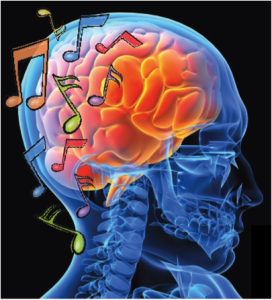Soulful Sonic Sound
The power of song
As a young girl the early years of schooling were full of joy and are easy to recall as each week began and ended with a whole school assembly led by the Head Teacher who would do their best to positively inspire the days ahead, typically followed by a collective chorus of songs or hymns sung by all. We were always accompanied by the tinkling ivories of our talented music teacher who regularly charmed a tune from the classic upright relic that had been hauled from pillar to post within the school and hence seen better days.
The best part of the day was this time when we sang together as one. The sensation of opening lungs and projecting song bird like sounds in unison with my comrades and classmates was a delight. Certain songs would summon variable emotions and sensations though little did I know or understand at such a young age why this was so. Primary years passed and all too soon Secondary education descended in a cloud of demanding expectation and with it paled the opportunity to create music and explore a very natural phenomenon of harmonising with one another. Sadly with the turning tides of age and educational evolution, morning song was abandoned much to the decline of our collective happiness. I had taken for granted that singing was something we all had to do as par for the course and it was only upon omission of this activity that I became aware of what a gift had been compulsorily afforded to us in these early years. In the absence of these musical moments shared it became apparent that by not singing, we as a society were missing a trick for people to be healthier and happier as a whole. The importance of self expression upon the delicate fabric of our psychology, neurology and physiology should not be underestimated and there has been much exploration into understanding this essential existentialism. Articles such labs.psych.ucsb.edu delve into the cultural impact of expression and many have dissected this aspect of human nature in order to gain insight into how we contextualise our existence and the tendencies of our species in terms of relating to ones self, each other and our environment.
One of the vital forms in which expression can be experienced is through the voice. Singing in particular promotes so many health benefits it would be foolish to ignore such a wonderful tonic for life. This mode of communication not only energises us by exercising our lungs, improving our posture, circulation, confidence and self esteem. It also stimulates mental capacity, promotes positive sleep patterns, reduces stress, anger, depression, anxiety and pain through the release of endorphins whilst also boosting our immune system, toning our intercostal muscles and diaphragm, increasing uplifted feelings, enhancing mood and well-being. When singing is done in a group the added benefit of bringing people together to share the experience can create a greater sense of community and support, often lessening the devastating effects of isolation whilst leading to greater opportunities for laughter, connectivity and friendship. Singing is a timeless enjoyment that has the potential to enrich lives and restoratively promote equilibrium regardless of gender, creed, age, ability or orientation.
Because singing increases the oxygen in the blood, exercises major muscle groups and positively effects emotional well-being through the action of the endocrine system it is believed that singing can in fact prolong life expectancy and creatively enhance sociability of the population. Extensive research repeatedly shows how singing can dramatically improve our health. When people sing oxytocin is released which gives them a high similar to that experienced during pregnancy (hence the ‘glow’), lactation, sex and eating chocolate. Dr Kreutze of Frankfurt University Music department conducted controlled research to provide evidence that our immune system is improved by the increase of antibodies secreted when we sing. By sampling the saliva of people before and after singing which showed significant changes including the reduction of stress and lowering of blood pressure. It should be noted that these changes were not so evident in the control group that only listened to music therefore demonstrating that we have to actively participate in the act of singing to fully reap its physical benefits. According to the journal paper mp.ucptess.edu when samples were taken from a professional chorale during early rehearsals and a public performance of Beethoven’s Missa Solemnis, measures of immune system response indicate that levels of secretory immunoglobulin A increased significantly, as a proportion of whole protein, 150% during rehearsals and 240% during the performance. Cortisol concentrations (steroid hormone created in adrenal cortex released in response to stress) decreased significantly at an average of 30% during rehearsal and 37% during performance. The Royal College of Music’s centre for performance science produced mirrored results with singers at Cheltenham’s prestigious Music Festival in July and London’s Union Chapel in March 2015 evidencing the psycho-biological effects similarly showing a reduction of cortisol and cortisone in both singers and audience members.
Therefore, it is surely obvious to conclude that if more people of all ages participated in singing opportunities the benefits would positively serve our society by enabling stronger community cohesion to be achieved, personal well-being of individuals increased and a lot more fun and laughter enjoyed by all. The absence of singing assemblies in many of our schools is a shame and categorically detrimental to our social success, therefore reintroduction of this transformative musical activity where possible though out school life, not just at Primary school level but through all stages of education and growth would encourage our children to develop into healthy, happy adults. To ensure inclusivity works such as the secular songs for schools created by Howard Goodall address the diversity of our current cosmopolitan culture. Thereafter, local choirs and singing groups could cater for all ages, enhancing greater community which transpires to become communication in unity if you read between the lines.
Music transcends difference, breaks down barriers, alleviates suffering and separation whilst giving all empowering access to soulful sonic sound expression. A better world is possible through song as people become less concerned with singing well and more aware of wellness through singing.




